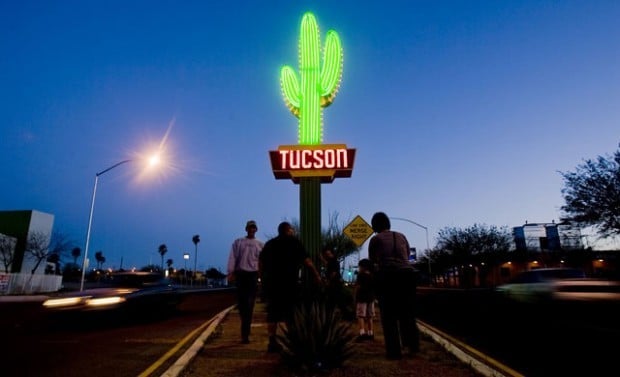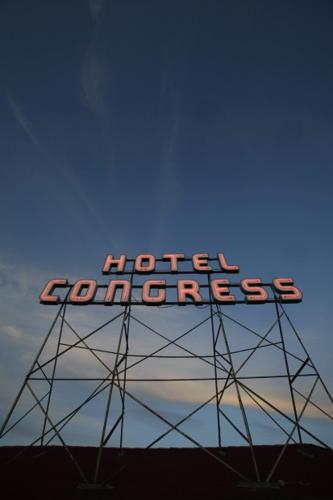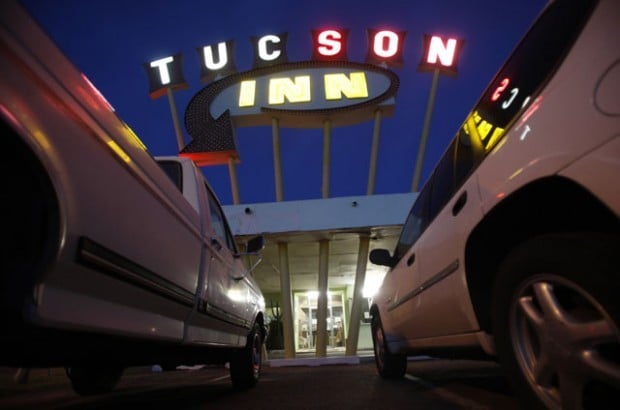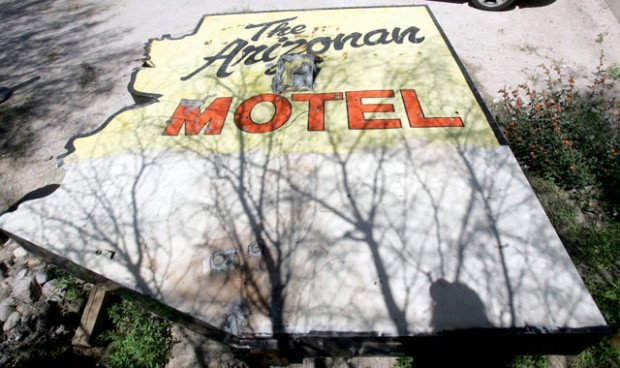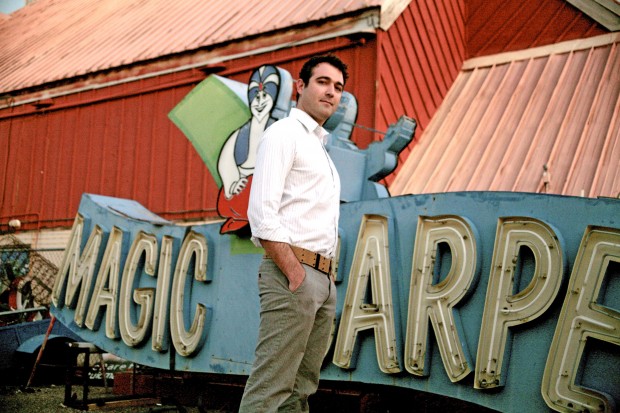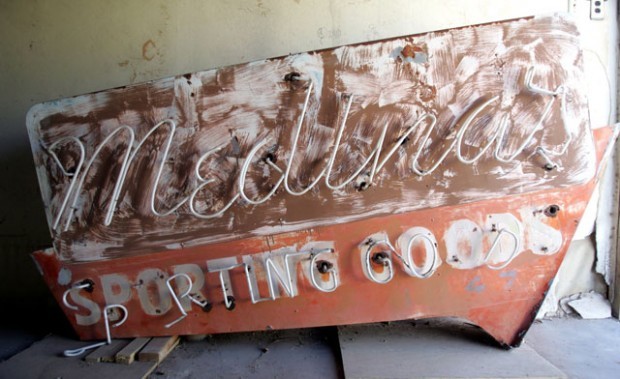Evan Voyles lives in Austin, Texas, and sells classic neon signs on his website, Neon Jungle.
Many of his signs come from the Lone Star State, but some come from other parts of the Southwest - including a few from the Tucson area.
One of the Tucson signs says "RADIO" and has an antenna in place of the "I." Another, from the Sunset Motel in Willcox, features the word "Sunset" in bright red letters.
Voyles, whose neon treasures have been featured in magazines and on MTV's "The Real World," says he scavenges for classic signs in places where the economy has dried up.
"I'm going to find the old road into town," he says. "Places that have not had a revival. Places that haven't had a reason to take neon down."
Tucson's old road into town, the "Miracle Mile strip," was a haven for neon in the 1950s and 1960s, when flashing signs beckoned to visitors with promises of swimming pools, grassy courtyards and $2 steak dinners.
Now, a group of historical preservationists are hoping to bring back the neon buzz.
On April 30, The Tucson Historic Preservation Foundation, a non-profit dedicated to preserving Tucson's architectural heritage, will hold a fundraiser on the roof at Hotel Congress to raise money to restore three old neon signs.
The group seeks to raise $30,000 to restore the neon signs salvaged from Magic Carpet Golf, Medina Sporting Goods and the Arizonan Motel. The cost is about $10,000 to refurbish and reinstall each sign.
The signs would be reinstalled along the route known as the Miracle Mile strip, which runs east from Interstate 10 along Miracle Mile, then south on Oracle Road, until turning again onto Drachman Street to Stone Avenue.
"The area we're looking at is about two miles long," Clinco says.
For much of the 20th century, the Miracle Mile strip was the way people drove into Tucson from the north.
Many of the motor lodges, restaurants and bars that popped up along the strip announced their presence with bright neon signs.
Over the years, Tucson's neon profile dimmed. Many classic signs were taken down and now sit in storage, or were thrown away.
Demion Clinco, president of the Tucson Historic Preservation Foundation, says he wants the Miracle Mile corridor to become a driveable neon museum.
"Neon signs have a real incredible power to activate the nighttime environment," says Clinco, 29, who grew up here and studied art history at Occidental College in Los Angeles.
In recent years, the Miracle Mile corridor has struggled to reclaim its lost luster. Many of the strip's once-glamorous motels are now seedy magnets for dubious activity.
Clinco knows neon won't change that all on its own. But he says it could be part of the solution.
"One of the tenets of modernity is if you turn on the lights people will come," he says. "When we turn on these signs people will start looking at the area in a different way."
The Miracle Mile strip got a little brighter earlier this month, when local artist Dirk Arnold debuted a neon sculpture in the shape of a saguaro at the Oracle Road-Main Avenue-Drachman Street interchange.
Before the Tucson Historic Preservation Foundation can start relocating restored neon signs to the strip, the city's sign code must change.
Most old signs violate the code because they are too large, too tall or too near a right-of-way. Under the current code, if an owner removes a sign for repair or restoration, it can't go back up.
A committee is considering changes to the code that would make it easier to repair classic signs. It will make recommendations soon and a proposed ordinance will be presented to the City Council this summer.
The city is also looking into creating a historic register of classic signs, according to Jonathan Mabry, Tucson's historic preservation officer.
"The amendment to the sign code will include an explicit and specific definition of what is a historic sign," says Mabry.
If you go
• What: Under the Neon Stars, a dinner event to raise money for the restoration of three signs.
Be advised, because of the rooftop's limited capacity, the Tucson Historic Preservation Foundation is only selling 100 tickets to its fundraiser.
As of press time, there were still tickets for sale - but they were going fast.
You can buy tickets or donate money at preservetucson.org.
• Where: Hotel Congress, 311 E. Congress St.
• When: 6:30 p.m. April 30.
• Cost: $125.
• Info: hotelcongress.com


